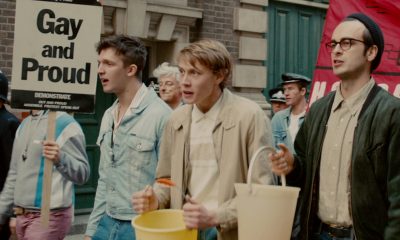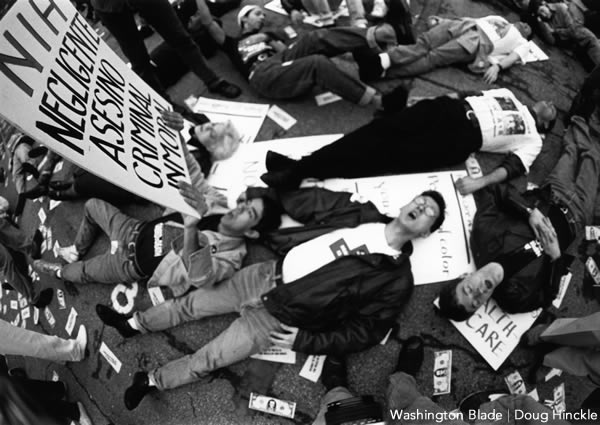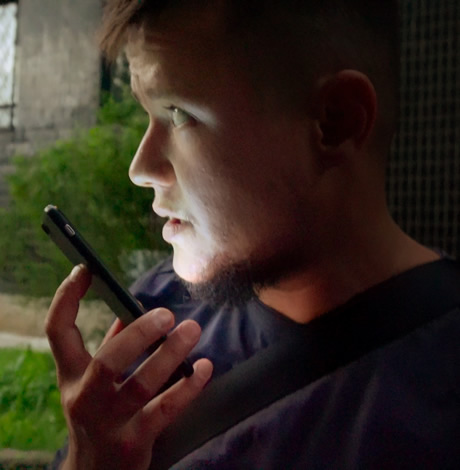Arts & Entertainment
Year in review: Best of the big screen
AIDS doc ‘Plague’ and steamy ‘Paperboy’ among year’s highlights
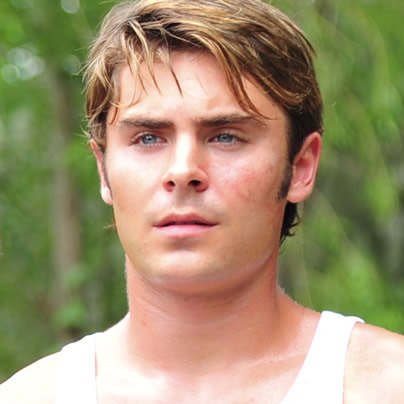
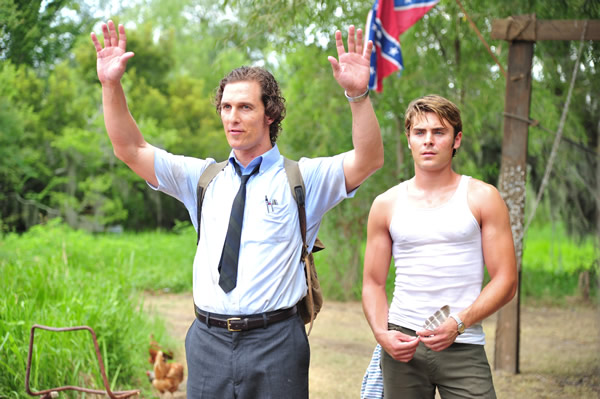
Matthew McConaughey and Zac Efron in new film ‘The Paperboy.’ The sordid tale opens today in the D.C. area. (Photo courtesy of the Karpel Group)
Undoubtedly, the highlight of the year in LGBT film was the release of David France’s amazing documentary “How to Survive a Plague.”
France, a first-time director but an experienced journalist who has written extensively on the AIDS crisis, worked with a dedicated team to collect and review about 500 hours of video footage shot by AIDS activists during the early days of ACT UP (the AIDS Coalition to Unleash Power) and TAG (the Treatment Action Group).
The result is an incredible film that combines the raw emotional energy of archival footage with the more detached analysis of contemporary interviews with survivors of the movement. The movie tells their story with great emotional and intellectual clarity and insight. It chronicles their successes and defeats, their miscalculations and their personal and professional struggles, but mainly the aching sense of lives lost to a vicious disease, an entrenched bureaucracy and an indifferent public.
The most memorable performance in an LGBT movie came from a very different film: Nicole Kidman in “The Paperboy,” helmed by openly gay director Lee Daniels. Following up on the success of “Precious,” Daniels turned to a steamy Southern tale of sex, murder and corruption in the Florida swamps of 1969. The bizarre film, which never quite jelled, featured a wild performance by Kidman as the vampy death row groupie Charlotte Bless.
Other highlights of the movie include, which may well be on the way to becoming a camp classic, include numerous scenes of Zac Efron in various states of undress and Matthew McConaughey as a muck-racking journalist with a secret of his own — he likes rough sex with black men.
Other highlights in LGBT film in 2012 include:
“Albert Nobbs,” which took star/producer Glenn Close several years to get to the screen. Close plays an Irish woman who lives as a man to support herself financially and protect herself from sexual violence. Her hermetic existence as the hotel clerk Albert Nobbs is burst open when she meets fellow cross-dresser Hubert Page (played with great gusto by Janet McTeer).
“Coriolanus” with Ralph Fiennes and Gerard Butler (“300”) in this excellent adaptation of Shakespeare’s queer look at militarism and misogyny. With remarkable fidelity to the Bard’s powerful language and themes, first-time director Fiennes moves the action to modern-day Kosovo and boldly highlights the homoerotic relationship between the Roman general Coriolanus and his Volscian foe Aufidius.
“The Best Exotic Marigold Hotel” — India once again serves as a source of renewal for a group of stiff-upper-lipped English expatriates who retire there. The all-star cast includes Tom Wilkinson as Graham Dashwood who finally finds love and the courage to come out at the exotic hotel.
“Skyfall” brings a much-needed reboot to the Bond franchise, restoring several Bond motifs and a missing sense of humor and style. With the help of Judi Dench (who continues her excellent work as M) and Ben Whishaw (a new recruit as Q), Daniel Craig’s Bond battles Javier Bardem as Silva, a British spy gone bad. For gay audiences there’s a special thrill when Bond responds to Silva’s sexual advances with the dry retort, “What makes you think this is my first time?”
“Lincoln” is Steven Spielberg’s biopic of the 16th president and features a powerful script by award-winning gay author (and Golden Globe nominee) Tony Kushner (“Angels in America”). Kushner has the amazing ability to turn political rhetoric into compelling drama as he chronicles how Abraham Lincoln fights for the passage of the 13th Amendment, which outlaws slavery in the United States. The film includes stellar performances from Daniel Day Lewis, Sally Field, David Strathairn, Tommy Lee Jones and James Spader, as well as a delightful cameo by S. Epatha Merkerson. The film also includes tantalizing hints at Lincoln’s intimate relationships with other men, including an invitation to share an aide’s bed.
Local LGBT audiences also enjoyed the continued success of two excellent regional film festivals: D.C. Shorts and Reel Affirmations.
Under the leadership of openly gay local filmmaker Jon Gann (“Cyberslut”), the ninth D.C. Shorts festival included a variety of exciting films all under 20 minutes. A number of fascinating gay and lesbian shorts were sprinkled throughout the 16 cinematic showcases, including “The Maiden and the Princess,” a queer update on traditional fairy tales that was part of a family showcase; “Hatch,” a dark movie by Austrian director Christopher Kuschnig that looks at the lives of two couples on a wintry night in Vienna when a baby’s fate is decided; and “The Queen of My Dreams,” a delightful Bollywood take on a lesbian’s coming-out story.
To extend their outreach, Reel Affirmations began a series of monthly film showcases in addition to the 21st annual film festival in November. The festival opened with the double bill of “Kiss Me,” a deeply romantic Swedish lesbian coming out story, and “I Do,” an American film about a gay couple in New York grappling with international immigration issues. The festival closed with “Bear City 2: The Proposal,” a celebration of the bear community and romantic Provincetown weddings.
A highlight of the festival was “Yossi,” the sequel to the Israeli indie gay hit “Yossi and Jagger.” The film reunites director Eytan Fox with star Ohad Knoller who turns in a deeply emotional performance as a man finally breaking out of his emotional paralysis.
Television
ICYMI: ‘Overcompensating’ a surprisingly sweet queer treat
A sweet, savvy show about breaking free to embrace your true self

Pride month 2025 is now behind us, and while it’s safe to say that this year’s celebrations had a darker edge than usual, it’s also true that they came with a particularly rich bounty of new queer movies and shows to entertain us – so many, in fact, that even if we are facing a lull until the fall another harvest of fresh content, there are still plenty of titles – which, for whatever reason, were off your radar – for you to catch up on in the meantime.
One of the most notable of these – the bingeworthy series “Overcompensating” (now streaming on Amazon Prime) – will most definitely have been ON the radar for the plentiful fans of creator and star Benito Skinner, the actor/comedian who rose to viral fame through his content on platforms like Instagram, YouTube, and TikTok. For anyone else, it might have easily slipped through the cracks.
Created and written by Skinner as a loosely autobiographical “college comedy,” it aims for the kind of raucous, explicitly sexed-up tone one expects from the genre as it centers on Benny (Skinner), newly arrived as a freshman at prestigious Yates University. A former football jock and “golden boy” at his midwestern high school, he’s the picture of idealized youthful masculinity; he’s also deep in the closet, struggling to keep his sexuality hidden and maintain his macho front under the intense scrutiny of the college’s social scene – and under the resentful eye of his older sister Grace (Mary Beth Barone), who has already secured her own place at the top of the pecking order.
In the first episode, Benny’s difficulties are eased when he meets Carmen (Wally Baram), another freshman trying to navigate the politics of college life; a gamer from a home marred by tragedy, she’s an outsider who feels like she’s putting on an act, too, and they click – giving him the convenient “cover” of female companionship while providing them both with much-needed support and encouragement. He’s also befriended by a handsome film major from England (Rish Shah), who has already caught his eye, stirring other kinds of feelings and possibly even reciprocating them. Meanwhile, he’s being courted by the school’s “exclusive secret society” – headed by his sister’s aggressively “alpha” boyfriend Pete (Adam DiMarco) – and trying to stay interested in his studies, despite a growing realization that a career in business doesn’t actually appeal to him all that much.
That’s a lot to juggle for anybody, even an overachiever like Benny – whose “lucky” life so far has largely been the result of playing a role he is finding harder and harder to maintain. As the series goes on through its eight-episode arc, it becomes clear that he’s not the only one who is “keeping up appearances,” and he, along with the other confused and damaged young people in his orbit, begins the painful (but often hilarious) process of evolution that is required in order to become truly oneself.
Directed toward appealing to a younger demographic, “Overcompensating” is the kind of show that requires a few episodes worth of invested time to make an impression that feels like substance. Full of the bawdy farcical antics that go hand in hand with stories about hormonally charged college kids, it’s not above leaning into the formulas and tropes that have always driven these kinds of comedies. At first, while its broadly comedic strokes and frequently explicit sexual hijinks might elicit plenty of chuckles, the show might easily feel tiresome for more mature audiences; there’s a nostalgic fun to it, made even more appealing, somehow, by the “political incorrectness” of its frequently sexist and homophobic humor, but for a while things may feel like an unnecessary attempt to reinvent “Animal House” for the Gen Z crowd.
By the time the season reaches its halfway point, however, things have started to get real. The antics of these horny almost-adults take on a more pointed absurdity, informed by the increasingly tangled web of defensive deceit they weave among themselves – and, as things draw toward a cliffhanger climax, the consequences of maintaining it – until it achieves a sense of empathy toward them all. There’s a wisdom that smacks of lived authenticity underlying the whole affair, transforming it from the “sexploitative” teen comedy of its surface into something deeper. To be sure, things stay expectedly wacky, and the soap-operatic melodrama of its twists and reversals continue to maintain the show’s “mature YA” appeal; but beneath those trappings, by the end of the season a truer identity has begun to emerge, just as its characters have begun to find their own levels of self-actualization for themselves.
As creator, primary writer, and star, it’s obviously Skinner who deserves much of the credit. While it might be tempting, early on, to dismiss the show as an “ego project,” the internet-spawned sensation proves his talents quickly enough to get past such judgy suspicions, delivering a pitch-perfect blend of sauciness and sensitivity that extends its appeal toward both ends of the taste spectrum; just as crucially, he brings the same aforementioned “lived authenticity” to his winning performance – after all, he’s essentially playing himself in a fictionalized version of his own life – while also making sure that equal time (and compassion) is afforded all the other characters around him, each of whom are pushing at the boundaries of their own respective “closets,” too. It’s unavoidable to notice that – like most of his co-stars – he’s plainly a decade too old to be playing a college student; but by the time we reach that crucial halfway turning point, we’ve become too engaged by him to care.
The show is full of excellent performances, in fact. Relative newcomers Baram and Barone offer layers of complex nuance, while the more familiar DiMarco (“White Lotus”) is close to heartbreaking as the toxic BMOC clinging to the illusion of power as his life begins unraveling around him. Other standouts include the mononymic actress Holmes as Carmen’s “wild child” roommate, solidly likable turns as Benny’s parents from mature veterans Connie Britten and Kyle MacLachlan (whose presence, along with stylish elements in several key scenes, hints at an homage-ish nod to the late David Lynch), and podcaster Owen Thiele as an openly gay fellow student who has Benny “clocked” from the moment they meet. Finally, Lukas Gage makes a deep impression as a former high school teammate at the heart of Benny’s most haunting memory.
There’s no official word yet on whether “Overcompensating” will be renewed for a second season, despite the multiple loose ends left dangling at the end of its first; it has proven to be popular, and Skinner’s large fanbase makes it likely that the story will continue. Even if it doesn’t, the place of uncertainty in which it has left its characters rings true enough to serve as a satisfying endpoint.
As for us, we hope that won’t happen. For all its sophomoric humor, generic plot twists, and purposefully gratuitous sexual titillation, it’s one of the sweetest, kindest, and most savvy shows we’ve seen about breaking free from conformity to embrace your true self – and that’s a message that applies whether you’re queer, straight, or anywhere in between.
Photos
PHOTOS: Independence Day Weekend in Rehoboth
Wicked Green Pool Party, fireworks among festivities

Vacationers and residents alike enjoyed Independence Day Weekend activities in Rehoboth Beach, Del. The Wicked Green Pool Party drew hundreds to the CAMP Rehoboth fundraiser on Saturday. That evening, revelers went to the rooftops to watch the fireworks display.
(Washington Blade photos by Daniel Truitt)













Music & Concerts
Red, White, and Beyoncé: Queen Bey takes Cowboy Carter to D.C. for the Fourth of July
The legendary music icon performed on July 4 and 7 to a nearly sold-out Northwest Stadium.

Just in time for Independence Day, Beyoncé lit up Landover’s Commanders Field (formerly FedEx Field) with fireworks and fiery patriotism, bringing her deeply moving and genre-defying “Cowboy Carter” tour to the Washington, D.C. area.
The tour, which takes the global icon across nine cities in support of her chart-topping and Grammy-winning country album “Cowboy Carter,” landed in Prince George’s County, Maryland, over the Fourth of July weekend. From the moment Beyoncé stepped on stage, it was clear this was more than just a concert — it was a reclamation.
Drawing from classic Americana, sharp political commentary, and a reimagined vision of country music, the show served as a powerful reminder of how Black Americans — especially Black women — have long been overlooked in spaces they helped create. “Cowboy Carter” released in March 2024, is the second act in Beyoncé’s genre-traversing trilogy. With it, she became the first Black woman to win a Grammy for Best Country Album and also took home the coveted Album of the Year.
The record examines the Black American experience through the lens of country music, grappling with the tension between the mythology of the American Dream and the lived realities of those historically excluded from it. That theme comes alive in the show’s opening number, “American Requiem,” where Beyoncé sings:
“Said I wouldn’t saddle up, but
If that ain’t country, tell me, what is?
Plant my bare feet on solid ground for years
They don’t, don’t know how hard I had to fight for this
When I sing my song…”
Throughout the performance, Beyoncé incorporated arresting visuals: Black cowboys on horseback, vintage American iconography, and Fox News clips criticizing her genre shift — all woven together with voiceovers from country legends like Dolly Parton and Willie Nelson. The result was a multimedia masterclass in storytelling and subversion.
The “Cowboy Carter” tour has been a social media sensation for weeks, with fans scrambling for tickets, curating elaborate “cowboy couture” outfits, and tailgating under the summer sun. At Commanders Field, thousands waited in long lines for exclusive merch and even longer ones to enter the stadium — a pilgrimage that, for many, felt more like attending church than a concert.
One group out in full force for the concert was Black queer men — some rocking “denim on denim on denim on denim,” while others opted for more polished Cowboy Couture looks. The celebration of Black identity within Americana was ever-present, making the concert feel like the world’s biggest gay country-western club.
A standout moment of the night was the appearance of Beyoncé’s 13-year-old daughter, Blue Ivy Carter. Commanding the stage with poise and power, she matched the intensity and choreography of her mother and the professional dancers — a remarkable feat for someone her age and a clear sign that the Carter legacy continues to shine.
It’s been nearly two decades since Beyoncé and Destiny’s Child parted ways, and since then, she’s more than lived up to her title as the voice of a generation. With “Cowboy Carter,” she’s not just making music — she’s rewriting history and reclaiming the space Black artists have always deserved in the country canon.
-

 Federal Government2 days ago
Federal Government2 days agoTreasury Department has a gay secretary but LGBTQ staff are under siege
-

 Virginia3 days ago
Virginia3 days agoDefying trends, new LGBTQ center opens in rural Winchester, Va.
-

 District of Columbia2 days ago
District of Columbia2 days agoGay GOP group hosts Ernst, 3 House members — all of whom oppose Equality Act
-

 Opinions4 days ago
Opinions4 days agoUSAID’s demise: America’s global betrayal of trust with LGBTQ people

